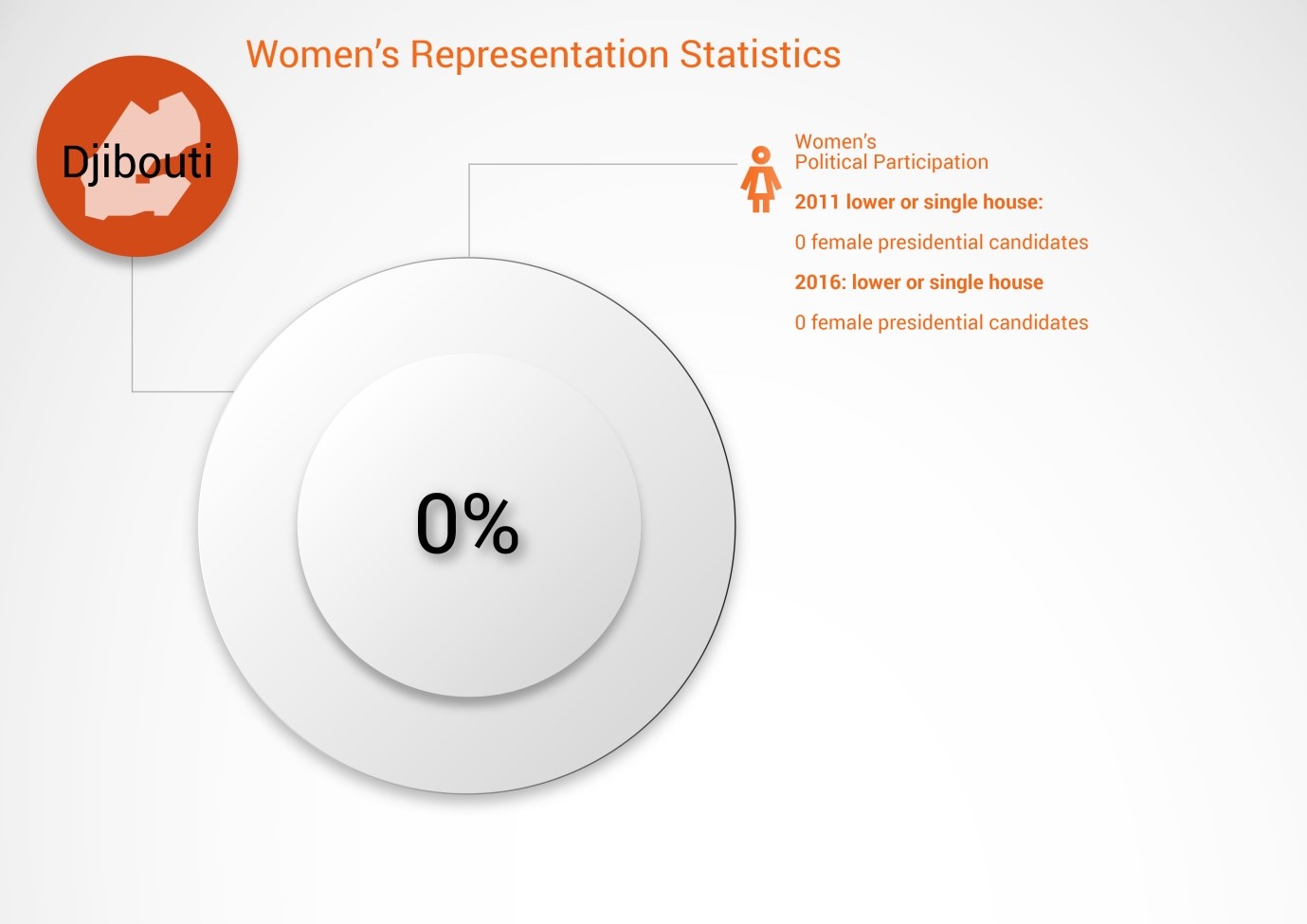2016 Elections Monitoring
Presidential elections in Djibouti were held on the 8th of April, 2016.
According to the Inter-Parliamentary Union, Djibouti is a semi-presidential republic, with executive power resting in the central government, and legislative power in both the government and the unicameral National Assembly. National-level elections in Djibouti are held for both the President and the National Assembly.As per the Electoral system, the President in Djibouti is directly elected by absolute majority popular vote in a two round system for a 5-year term. Until 2010, the president was elected for two six-year terms. The Constitution was then changed, which scrapped term limits and reduced the term to five years.
Djibouti is a one party dominant State with the People's Rally for Progress (RPP) in power. Oppositionparties are allowed since the 1992 referendum, but they have been represented in parliament only since the 2013 elections. President Ismaïl Omar Guelleh, from the dominating political party People’s Rally for Progress (RPP), was re-elected for the 4th time in a row, receiving 87% of the total vote. With 191,103 registered voters, voter turnout was around 67%. The exact number of women voters is unclear and of the 6 competing candidates, none were female.
Women's Political Participation
Although there are women within the political parties of Djibouti, and though Djiboutian law requires at least 20 percent of upper-level public service positions to be held by women, this requirement has not been enforced; women hold less than 13 percent of legislative seats and only one of 18 cabinet posts.
There were no female candidates in the Djibouti Presidential Elections of either 2011 or 2016. Currently, women hold 7/55 seats in the house of Parliament. According to the Inter-Parliamentary Union (IPU), Djibouti is 102nd in the ranking of World Classification with only 12.7% of women represented in their parliament’s lower or single house.
In terms of gender equality, there are very few laws or policies to protect the rights of women and young girls, specifically in terms of ownership and sexual harassment. The government cooperates with local organisations to provide training on women’s rights, but it is difficult to assess any progress due to an acute lack of data and the overarching influence of customary law. Furthermore, although the law provides equal treatment for all citizens, women in Djibouti have fewer employment opportunities and are also paid less than men for the same work. Several discriminatory laws, such as Djiboutian customary law and practices, have been the main reason why women in the country face severe discrimination and violence and have hardly any say when it comes to matters related to inheritance and property matters, divorce, and/or freedom of movement. Djiboutian law also prohibits female genital mutilation (FGM), but several reports state that 93% of women have undergone the procedure. About 50% of girls now receive primary education due to the government's efforts to increase female enrolment in schools all over the country.
Conclusion
Much needs to be done to increase women’s participation and inclusion in politics in Djibouti. First and foremost, Djibouti must strive towards being a better democracy by introducing term limits for political posts. Next, the government should underline the role and importance of women as decision-makers in order to be able to hold important positions of power in the short future. In addition,socio-cultural and economic obstacles must be combated by promoting women’s education, capacity-building, training and full inclusion of women in decision-making positions and bodies.
Djibouti must take measures to increase women’s participation in public and political life, especially by increasing gender quotas in the political sphere. Finally, it is essential to reform discriminatory legislation and bring it in conformity with the Convention on the Elimination of All forms of Discrimination against Women (CEDAW) and the Maputo Protocol.

